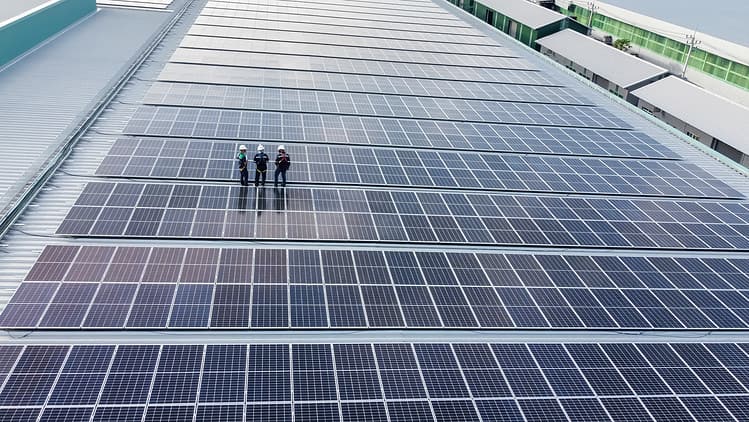
The COVID-19 pandemic has brought the importance of sustainability into sharp focus, as people around the world have become acutely aware of the interconnectedness of our planet and the need for a more resilient and sustainable future.
In the travel and hospitality industry, there has been a growing focus on sustainable practices and responsible tourism, with many companies implementing measures to reduce their environmental impact and support local communities. This shift towards sustainability is not only good for the planet but also for the long-term success of the industry.
Understanding Sustainability in Travel
Sustainability in travel is about balancing the environmental, social, and economic impacts of travel to minimize negative effects and maximize positive effects. It involves reducing waste, conserving resources, and mitigating environmental impacts while preserving cultural heritage and benefiting local communities.
Sustainability aims to drive growth for businesses that create jobs and promote travel while maintaining a healthy environment that supports long-term human habitation and preserves our planet’s resources so that the thirst for exploration and travel continues.
There are four pillars of Sustainability in my understanding
- Sustainable Economy: A stable economy is the driving force of society and must be sustainable in itself. During times of financial hardship, it becomes increasingly difficult to invest in long-term sustainability.
- Job Creation: A sustainable economy also leads to job creation, which is essential for the growth of society.
- Inclusive Development: Often, the system is biased towards the wealthy and influential. Sustainability 2.0 advocates for inclusive development, engaging all sections of society in restructuring to create jobs within a sustainable economy.
- Protection of Individuals: Finally, the rights of individuals must be protected, and everyone should be able to enjoy a secure and decent life.
The question remains how do you drive all four of these?
Making Technology a Driver for Sustainability
Modern-day technology – such as automation, the Internet of Things (IoT), Artificial Intelligence (AI), and smart analytics – can lead the future of sustainability in the travel and hospitality industry.
Sustainable Economy
1. AI can help reduce the environmental impact of travel by providing insights into patterns and trends.
By analyzing data on energy usage, water consumption, and waste production, AI can identify areas where sustainable practices can be implemented. This information can then be used to develop strategies to reduce carbon emissions and waste generation. For example, AI-powered energy management systems can optimize energy consumption in hotels and resorts, reducing their carbon footprint.
2. AI can help improve resource management in the travel industry.
By analyzing data on customer behavior, AI can predict future trends and patterns, allowing businesses to optimize their resource usage. For example, AI-powered demand forecasting systems can help airlines optimize their flight schedules, reducing fuel consumption and carbon emissions.
3. IoT can measure and report energy and water inefficiencies.
By installing IoT sensors in guest rooms, common areas, and back-of-house operations, hotels can collect data on energy and water consumption, waste production, and carbon emissions. The collected data can then be analyzed to identify inefficiencies, develop sustainability targets, and monitor progress toward those targets. This data can also be used to inform guests of the environmental impact of their stay and provide recommendations on how they can reduce their own carbon footprint.
4. OTAs can have an opt-out for towels, toiletries, plastics, etc.
By partnering with OTAs, hotels can inform guests about these programs before they arrive, giving them the opportunity to opt out of daily towel and linen service, as well as single-use plastics, such as straws, cups, and toiletries. This can reduce waste and water consumption, while also saving hotels on laundry and cleaning costs.
Additionally, hotels can encourage guests to bring their own reusable water bottles and offer water refilling stations throughout the property to reduce plastic bottle waste. By partnering with OTAs to promote these sustainable practices, hotels can attract environmentally conscious guests who value sustainability and responsible travel.
5. Content management on OTAs can communicate how customers can ensure that local communities and wildlife are not endangered.
By incorporating sustainability messaging in their content management systems, OTAs can highlight hotels that are committed to sustainable tourism practices and inform guests about ways they can reduce their environmental impact during their stay. For instance, OTAs can provide information about local conservation efforts, responsible wildlife viewing, and sustainable transportation options. By providing accurate and up-to-date information, OTAs can help guests make informed decisions and support hotels that prioritize sustainability.
6. AI can provide personalized, eco-friendly recommendations.
By analyzing data on customer preferences and behaviors, AI can provide recommendations for sustainable travel options, such as eco-friendly accommodations and green transportation options.
Creating More Value for Employees
Hotels can use technology to streamline operations and automate repetitive tasks, freeing up staff to focus on higher-value activities. This can lead to increased efficiency and productivity, which can result in the creation of new job roles within the hotel.
Inclusive Development
Hotels can use technology to engage with and support local communities. For example, they can use social media platforms to promote local businesses and cultural experiences, or provide training and education opportunities for disadvantaged groups.
- Generative AI can teach communities to translate faster and communicate better. By utilizing Generative AI, hotels can create language translation systems that help employees and guests to overcome language barriers. With the use of real-time translation, employees can communicate with local communities more effectively, understand their customs and traditions, and provide better experiences for guests.
- Generative AI can be used to create educational materials that promote sustainable tourism practices.
These include sustainable tourism practices such as how to reduce waste and conserve natural resources. By communicating sustainability efforts in the local language, hotels can ensure that the message is clearly understood, and the local community can participate in sustainability initiatives.
Protection of Individuals
Hotels can use technology to enhance guest safety and security. For example, they can use contactless check-in and check-out, digital room keys, and mobile apps to minimize face-to-face interactions and reduce the risk of infection. They can also use surveillance technology to monitor public areas and ensure guest safety.
Hospitality Leaders Driving the Change
- Marina Bay Sands: Energy Management System – Marina Bay Sands in Singapore has implemented an AI-powered energy management system that monitors energy consumption and identifies areas for optimization. The system uses machine learning to predict energy demand and adjust energy usage accordingly, reducing carbon emissions and energy costs.
- Marriott International: LEED Dynamic Plaque – The Marriott International hotel chain has implemented an AI-powered tool called the “LEED Dynamic Plaque” in its properties across the APMEA and Americas regions. The tool tracks sustainability performance in real time, providing insights into energy and water usage, waste generation, and other metrics.
- Alila Hotels & Resorts: EcoSmart Sustainability Metrics Tracking – The Alila Hotels and Resorts chain, which has properties across Asia, uses an AI-powered system called EcoSmart to track sustainability metrics such as energy usage, water consumption, and waste generation. The system provides real-time data and analytics to help the hotels optimize their sustainability efforts.
- AccorHotels: Green Key Program – AccorHotels in France has implemented a Green Key program that promotes sustainable practices in its hospitality operations. The program uses AI to monitor energy usage, reduce waste, and promote sustainable practices among employees and guests. Additionally, the program provides guests with personalized recommendations for sustainable travel options.
- Henn-na Hotel: AI Robots to Control Energy Usage – The Henn-na Hotel in Japan, which is owned by a European company, uses AI-powered robots to control energy usage in the hotel. The robots adjust the temperature in each room based on occupancy, helping to reduce energy consumption.
- Four Seasons Hotel: AI-Powered Waste Management – The Four Seasons Hotel in Madrid, Spain, has implemented an AI-powered waste management system that uses sensors to monitor waste levels and optimize waste collection schedules. This has helped the hotel reduce waste and improve recycling rates.
- The 1 Hotel Brooklyn Bridge: Smart Energy Management – The 1 Hotel Brooklyn Bridge in New York City uses a smart energy management system that utilizes AI to control energy consumption in the hotel. The system uses sensors and algorithms to optimize heating, cooling, and lighting in hotel rooms, reducing energy consumption and costs.
- Citizen Hotel: Smart Irrigation System– The Citizen Hotel in Sacramento, California, has installed an AI-powered irrigation system that uses weather data to optimize watering schedules for the hotel's landscaping. This system has helped the hotel reduce water consumption and costs.
- Hilton Hotels: LightStay Program – Hilton Hotels in the United States has implemented a LightStay program that promotes sustainable practices in its hospitality operations. The program uses AI to monitor energy usage, reduce waste, and promote sustainable practices among employees and guests. Additionally, the program provides guests with personalized recommendations for sustainable travel options.
- Radisson Blu Hotel: AI-Powered Energy Management – The Radisson Blu Hotel in Frankfurt, Germany, uses an AI-powered system to track energy usage and identify opportunities for improvement. The system provides real-time insights into energy consumption and helps the hotel reduce its carbon footprint.
While some of the hospitality leaders have already started taking initiatives toward a smarter, more sustainable future, governments and the industry at large need to rethink their vision for sustainability. It’s now time to consider Sustainability 2.0, and what it means for the next decade of travel.
About RateGain
RateGain Travel Technologies Limited is a global provider of SaaS solutions for travel and hospitality that works with 2800+ customers and 700+ partners in 100+ countries helping them accelerate revenue generation through acquisition, retention, and wallet share expansion.
For more information, please visit https://www.rategain.com.
Ankit Chaturvedi
AVP-Marketing
+91 9654502760
RateGain Technologies Limited




